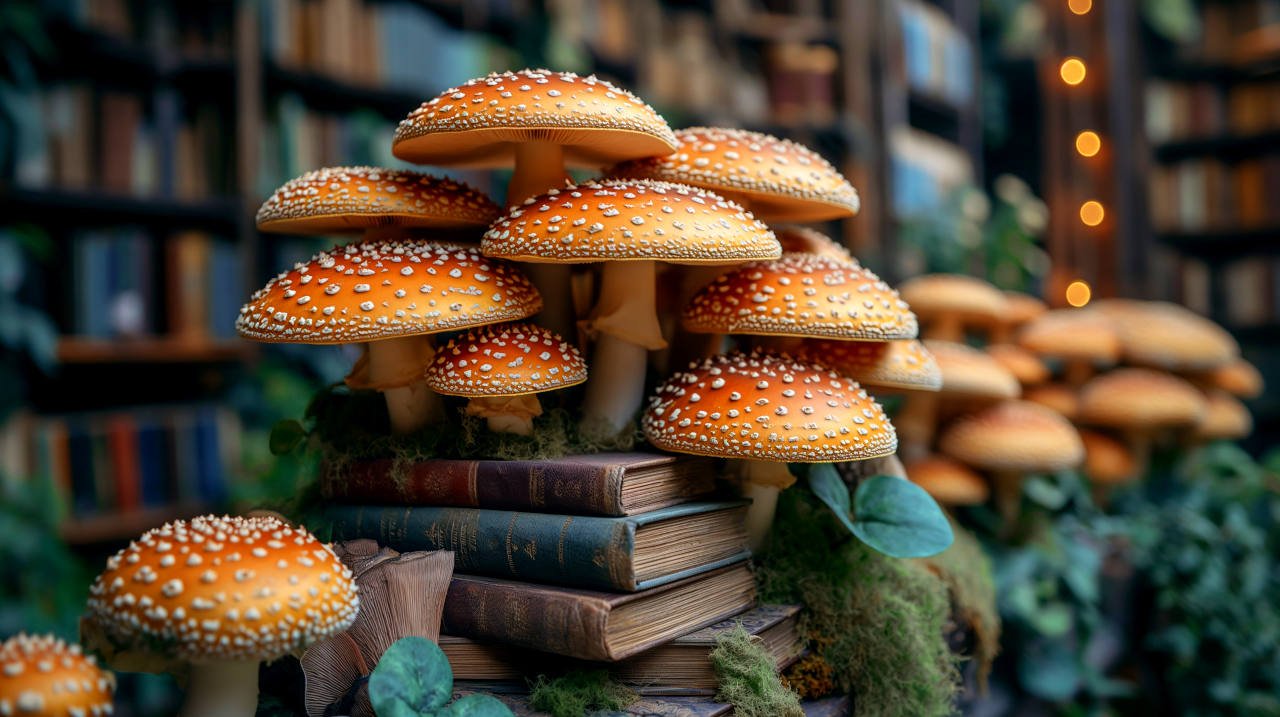Essential Reading in Psychedelic Literature: A Guide to New & Timeless Books
Exploring the world of psychedelics opens up a fascinating mix of history, science, and spiritual understanding. This area, known for its groundbreaking ideas and treatments, is illuminated and informed by key works of scientific, academic, and exploratory literature.
These literary classics and resources offer more than just a historical context; they deeply explore the philosophical and therapeutic aspects of these substances.
This article will guide you through a selection of these essential reads, from the firsthand accounts of trailblazing chemists to the thoughtful insights of famous researchers. These books have greatly influenced our understanding of psychedelics and continue to engage both beginners and experts in this intriguing field!
Current Titles in Psychedelic Literature
American Trip: Set, Setting, and the Psychedelic Experience in the Twentieth Century by Ido Hartogsohn – Hartogsohn delves into the modern history of psychedelics, examining their influence on culture and society, including LSD’s impact on Silicon Valley.
LSD: My Problem Child by Albert Hofmann – Written by the discoverer of LSD, this book reflects on the history, impact, and transformative potential of LSD.
The Promise of Psychedelics: by Peter Silverstone, MD – Silverstone explores psychedelics in psychiatry, addressing their potential as effective treatments and their complexities.
True Hallucinations: Being an Account of the Author’s Extraordinary Adventures in the Devil’s Paradise by Terence McKenna – McKenna’s book is a surreal account of his adventures in the Amazon Basin searching for shamanic hallucinogens, blending exotic experience with scientific inquiry.
Consciousness Medicine: Indigenous Wisdom, Entheogens, and Expanded States of Consciousness for Healing and Growth by Francoise Bourzat and Kristina Hunter – This book offers a holistic model for navigating psychedelic states of consciousness, integrating indigenous and Western wisdom.
The Psilocybin Handbook for Women: How Magic Mushrooms, Psychedelic Therapy, and Microdosing Can Benefit Your Mental, Physical, and Spiritual Health by Jennifer Chesak – Chesak explores the specific benefits and risks of psilocybin for women, combining modern science and traditional wisdom.
Psychedelic Medicine: The Healing Powers of LSD, MDMA, Psilocybin, and Ayahuasca by Richard Louis Miller, MA, PhD – Dr. Miller, with over 50 years of experience as a clinical psychologist, discusses the healing powers of many psychedelic drugs. The book covers the scientific, medicinal, and political aspects of psychedelics, providing an in-depth understanding of their potential in therapy.
How to Change Your Mind: What the New Science of Psychedelics Teaches Us About Consciousness, Dying, Addiction, Depression, and Transcendence by Michael Pollan – Pollan’s book, highly acclaimed and the basis for a Netflix series, explores the uses of psychedelics in treating mental health conditions. The book discusses both the psychiatric and spiritual applications of these substances.
These books cover a range of topics, from historical uses and cultural impacts of psychedelics to modern scientific research and personal experiences. They provide a comprehensive view of the field of psychedelic therapies.
Classics in Psychedelic Literature
Among the many works on psychedelics and psychedelic therapy, there are a few that are widely considered classics or canonical in the field.
These influential classics include:
The Doors of Perception by Aldous Huxley – This book details Huxley’s experiences with mescaline and is one of the earliest explorations of the philosophical and subjective experiences of psychedelic drugs. It’s often cited as a seminal work that opened up the discussion about psychedelics in Western culture.
DMT: The Spirit Molecule – A Doctor’s Revolutionary Research into the Biology of Near-Death and Mystical Experiences by Rick Strassman, M.D. – Strassman’s book is based on his extensive research on DMT, including clinical trials. It explores the chemical’s effects and its potential implications for understanding human consciousness and the structure of reality.
Psilocybin: Magic Mushroom Grower’s Guide by Terence and Dennis McKenna – Written by two of the most prominent figures in the study of psychedelics, this book provides detailed information about cultivating psilocybin mushrooms. It is notable for its scientific approach and for demystifying the process of mushroom cultivation.
The Psychedelic Experience: A Manual Based on the Tibetan Book of the Dead by Timothy Leary, Ralph Metzner, and Richard Alpert (Ram Dass) – This book is an interpretation of the Tibetan Book of the Dead through the lens of psychedelic experience. It was influential in the 1960s and remains a key text in understanding the spiritual and psychological implications of psychedelic experiences.
Psilocybin Mushrooms of the World: An Identification Guide by Paul Stamets – A comprehensive guide by renowned mycologist Paul Stamets, focusing on the identification of psilocybin mushrooms.
![]()

As we wrap up our exploration of the key texts in psychedelic literature, it’s clear that these aren’t just ordinary books. They serve as gateways to a world beyond what we usually see and understand.
These books have played significant roles in the history and development of psychedelic research and culture and continue to be influential in discussions about the therapeutic and spiritual uses of psychedelics.
These works challenge us to think differently, to explore and experience realms beyond our normal perception.
For both experienced enthusiasts and those new to the field of psychedelics, these classic texts act as a guide through the intricate and often mystical world of psychedelic experiences.
They continually remind us that exploring our consciousness is a journey with endless layers of discovery and new possibilities!
Note: This post contains Amazon links for your convenience in ordering and product research- those links will open in a new window. I do not sell or provide personally identifying information to any 3rd parties.


